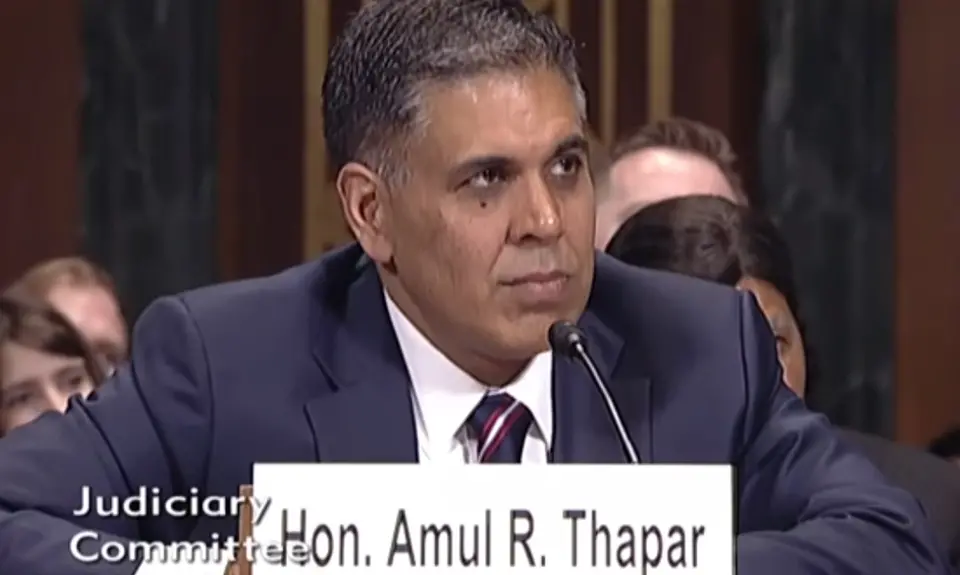“Confirmed Judges, Confirmed Fears” is a blog series documenting the harmful impact of President Trump’s judges on Americans’ rights and liberties. Cases in the series can be found by issue and by judge at this link.
Trump Sixth Circuit judge Amul Thapar argued that a man who sought asylum in the US because of threatened persecution should be immediately deported despite significant concerns about legal error by the Immigration Judge (IJ) at his hearing. The court majority disagreed and granted a stay of removal so that the man’s appeal could be considered in Ramirez v. Barr, 2020 U.S. App. Lexis 19455 (June 23, 2020).
Roberto Carlos Guerrero Ramirez sought asylum when he entered the US. He maintained that he would be persecuted and imprisoned by the Nicaraguan government if he were sent back due to his participation in protests. Among the evidence at his hearing was his submission of a list of names including his own that were posted on social media, and who he testified would be imprisoned without due process. His claim was supported by news articles, a human rights report, and a letter from a friend stating that those on the list would be “capture[d] and taken” to jail and that “police had been searching” for Ramirez.
The IJ denied Ramirez’s request, stating that although Ramirez was credible, he had failed to provide corroborating evidence for other important aspects of his testimony. The decision was approved on administrative appeal and Ramirez was ordered to be deported. He then appealed to the Sixth Circuit and sought a stay of removal.
In a 2-1 order joined by George W. Bush nominee Helene White, the Sixth Circuit agreed. The majority found that a stay was required to avoid irreparable injury and that Ramirez had made a “strong showing” that he would likely succeed on the merits of his claims. The majority noted that precedent required that Ramirez be given an opportunity to explain why he did not provide corroborating evidence concerning the aspects of his testimony sought by the IJ, which did not occur. In addition, the majority concluded that Ramirez would likely prevail on his contention that the IJ decision was not supported by “substantial evidence,” because the IJ had effectively ignored the report, letter, and other evidence that showed that Ramirez was on a list of people who the Nicaraguan government was trying to send to jail because of protest activity.
Trump judge Thapar dissented, claiming that the court should be “highly deferential” to the executive branch’s immigration enforcement decisions. He asserted, as did the government, that Ramirez was given a chance to explain his lack of corroborating evidence, that the law did not require more, and that the IJ found the evidence submitted by Ramirez “not convincing.”
The majority explained what was wrong with these claims. The record showed, the majority pointed out, that the IJ did not truly provide Ramirez with the “opportunity to explain the absence” of corroborating evidence that the IJ thought could be useful, that relevant precedent requires such an opportunity, and the “record as a whole” showed that Ramirez’ evidence about his inclusion on the list of people who the government was seeking to imprison “compels” the conclusion that Ramirez had presented substantial evidence.
The Sixth Circuit majority thus stayed Ramirez’s removal from this country so he could present his case to the court. If it had been up to Thapar, however, he would have been immediately deported.
